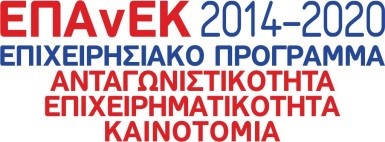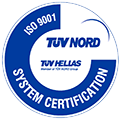The European Commission’s science and knowledge service, the Joint Research Centre (JRC), announces eight calls for access to its research infrastructures in Petten (Netherlands), Karlsruhe (Germany) and Ispra (Italy).
The JRC opens three of its Environmental and Materials Engineering (EMMA) laboratories in Petten. EMMA facilities focus on testing materials at high temperatures and in corrosive environments using test samples, from microscale to macroscale. Most research supports international and European projects involving national nuclear research laboratories; universities, as well as the nuclear industry.
The Kiwi User Laboratory (ActUsLab) has advanced instruments for measuring and researching the properties of materials in various temperature, pressure and magnetic field conditions. Studies conducted at JRC bring knowledge of actinides to the level of “designed materials” (“material by design” »). Promoting international cooperation and providing access to specialised facilities through EU programmes is key to realising and expanding the European Research Area in the fields of actinide chemistry and physics.
The European Laboratory of Structural Assessments (ELSA) has the largest “Hopkinson bar” (HopLab) unit in the world, which is used to study materials and structural elements at dynamic loads of high speeds, such as those resulting from explosions and impacts, where knowledge of the behavior of materials under high deformation is necessary.
The JRC’s nanobiotechnology laboratory has advanced facilities for interdisciplinary studies, with a particular focus on the characterization of nanomaterials, nanopharmaceuticals, advanced materials, and micro(nano)plastics. The project focuses on the science-based understanding of the physicochemical properties of these materials and their interactions with biological systems.
The calls are addressed to academic andresearch organisations, industry, small and medium-sized enterprises and the private and public sectors in general.
Information on the topics to be prioritised in the upcoming calls, covering travel and subsistence costs for users from institutions located in a country eligible for the ‘Widening participation and spreading excellence’ programme, as well as anything else you need, can be found here: https://joint-research-centre. ec. europa. eu/knowledge-research/open-access-jrc-research-infrastructures_en.
Conditions and criteria for access
- The eligibility of the countries of the user institutions may vary depending on whether they are in the nuclear or non-nuclear sectors.
- The Lead user must be a university, a research or public institution, or a small and medium-sized enterprise.
- Ethical principles in accordance with EU law, in particular Article 19 of Regulation (EU) No …/… Regulation (EU) No 1291/2013, and the laws and regulations in force in the EU Member States.
The JRC may provide, under certain conditions (see this call), a contribution, whether in cash or in kind, to cover travel and subsistence costs, depending on the days of stay of the users, subject to the availability of funds, staff and other resources for users.
Applications for access to the JRC’s research infrastructures can be submitted from today until the following deadlines:
–Nanobiotech until 1 March 2023 at 23:45 CET
–ELSA until 15 February 2023 at 23:45 CET
–ACTUSLAB until 10 March 2023 at 23:45 CET, and
–EMMA until 31 January 2023 at 23:45 CET.
You can read examples of past or ongoing collaborations that took part in the JRC call in the new research infrastructure brochure.


















